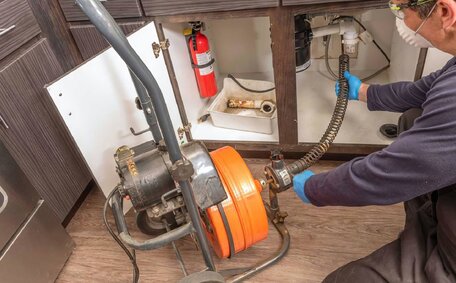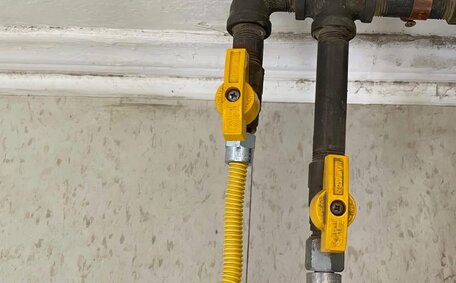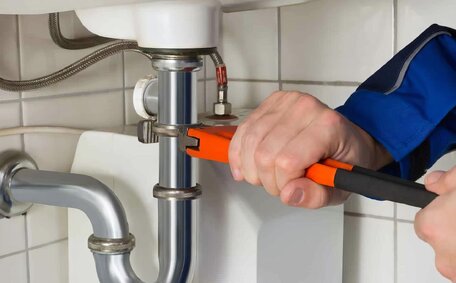Understanding Natural Gas Conversion Basics
Converting to natural gas involves installing specific components which offer notable benefits:
- Natural gas appliances you can use are often more energy efficient, resulting in lower energy bills.
- Natural gas produces fewer emissions, making it better for the environment.
- Natural gas delivered may be more readily accessible via existing utility infrastructure.
Nevertheless, conversion to natural gas requires meticulous planning and professional installation to ensure safety and functionality, as DIY efforts carry substantial risks.
The Natural Gas Conversion Process
The process of converting appliances from LPG to natural gas includes essential steps:
- Consult your local natural gas utility on availability and connection requirements.
- Enlist a qualified gas technician to replace LPG components with those meant for natural gas.
- Obtain necessary permits and schedule inspections.
- Thoroughly check for gas leaks in all connections prior to usage.
- Ensure technicians adjust burner output for peak efficiency.
A BBQ gas conversion kit simplifies fuel source switching for appliances. Reliable contractors can effectively handle permits, conversions, and inspections.
Is a Natural Gas Conversion Right for You?
Adopting new gas sources can be beneficial, but requires considering elements such as:
- Availability: Confirm if your area has natural gas lines running to residences.
- Costs: Weigh expenses for your new equipment/installation vs. long-term savings.
- Safety: Faulty DIY conversions risk fire, explosions and carbon monoxide poisoning.
For homes connected to gas mains, adapting appliances to natural gas boosts efficiency and supports environmental goals.
Identifying the Right Conversion Kit
Using the appropriate LPG conversion kit tailored for each appliance is crucial for performance and safety when adapting to natural gas.
Types of Conversion Kits
Conversion kits come in several varieties to match common appliances:
- BBQ conversion kits: Swap LPG tanks for natural gas line connections with hose regulator. Kits start around $100.
- Cooktop kits: Adjust stovetop and side burner configurations and orifices for natural gas.
- Oven kits: Update oven and broiler burners for natural gas compatibility.
- Water heater kits: Convert tankless or traditional water heater combustion systems.
- Heating system kits: Enable heat sources, including furnaces, boilers, and wall gas heater units, to operate on natural gas.
Choosing the Right Natural Gas Conversion Kit
To choose the right natural gas conversion kit for each appliance:
- Confirm appliance makes and models. Older units may lack conversion options.
- Seek out manufacturer guidelines for endorsed burner builtin kits and any other relevant conversion equipment.
- Check kit specifications match your appliance’s BTU/hr gas usage rate.
- Verify kits meet local/regional regulations and emission standards.
- For your order and installation assistance, contact qualified technicians at Abbotsbury Plumbing operating locally in the Sydney area.
Properly reconfiguring appliances ensures high efficiency with cleaner natural gas systems.
Hiring a Professional for Installation
Converting appliances to natural gas necessitates specialised expertise, tools, and licensing, with DIY methods posing hazards such as leaks and carbon monoxide poisoning.
Benefits of Professional Installation
Employing a licensed gas fitter ensures:
- Correct installation aligned with manufacturer’s guidelines
- Leak tests to verify the safety of connections
- Tuning for ideal gas flow and efficient burner performance
- Adhering to building codes and safety standards
- Safe, efficient system operation after conversion
What to Look for in a Gas Fitter
When selecting a professional, make sure they:
- Hold current licensed gas fitting licences for your region
- Are properly insured and bonded
- Have training on latest codes and natural gas systems
- Can provide references from previous conversion projects
- Offer clear quotes, timelines, warranties, and support
For trusted, reliable natural gas conversions in the Abbotsbury area, contact the experts at Abbotsbury Plumbing today via email or phone.
Testing for Gas Leaks
Following a natural gas conversion and installation, it’s critical to rigorously test all connections for leaks, as even small leaks are dangerous, causing explosions or poisoning.
How to Test for Gas Leaks
Implement comprehensive gas leakage evaluations, and please check your system meticulously:
- Inspect appliance connections for bubbles using leak detection spray or fluid.
- Scan all pipes and joints with an electronic gas detector for concentrations exceeding 10% of the Lower Explosive Limit.
- Observe regulator gauges for pressure decreases over 15 minutes, suggesting potential leaks.
- Pay special attention to any smelly locations, as natural gas has an odorant added.
Note any leak locations for immediate convert natural gas repair. Evacuate the building if a serious leak is found and contact emergency services.
Consider Professional Assistance
While homeowners can conduct DIY tests, enlisting technicians like Abbotsbury Plumbing for leak resolution after conversion is typically advisable. Their experts have the proper equipment, experience and licencing to ensure your system’s safety.
Install Carbon Monoxide Detectors
To maintain natural gas safety after appliance conversions, install carbon monoxide detectors for alerts on hazardous levels. Place detectors as recommended by the manufacturer for effective area monitoring.
With diligent leak testing, expert assistance, and monitoring devices, converted natural gas systems can safely supply efficient, eco-friendly fuel long-term.
Maximizing Efficiency Gains
Transitioning your home’s appliances from LPG to natural gas can result in considerable efficiency gains and savings. According to the U.S. Department of Energy, upgrading from an older LPG furnace to a new high-efficiency natural gas furnace reduces annual heating costs by about 30% on average.
The key driver of these efficiency gains is that natural gas delivers more energy per unit than LPG. When burned, natural gas emits nearly 30% lower carbon dioxide emissions and over 50% lower nitrogen oxide emissions per BTU compared to LPG.
Such cleaner combustion enhances performance and energy utilisation in updated appliances, including furnaces and water heaters, modernising your home. Maximising these efficiency benefits requires proper equipment sizing and adjustments during the conversion process to optimise air-fuel mixtures and burner output.
Natural gas also affords efficiency gains for vehicles. Natural gas-powered buses and trucks demonstrate nearly 40% lower fuel costs per mile than their gasoline equivalents, based on federal fuel economy trials.
Families can gain environmental and financial benefits by upgrading to efficient natural gas-powered home systems with the guidance of skilled technicians.
Cost and Permit Considerations
A natural gas conversion incurs costs for new equipment, professional installation, and permits, with total expenses differing due to various factors:
- Types and sizes of appliances - Larger, more complex systems like furnaces or water heaters have higher material and labour costs.
- Home layout - Longer gas line connections and venting accommodate more complex configurations but add expenses.
- Permit fees - Approval fees vary based on local regulations, project scale, and specific requirements.
In the Abbotsbury area, typical natural gas conversion costs fall between $2,000-$5,000 including permits and installation. Extensive projects with multiple appliances can reach $10,000 or more.
Understanding Permitting Requirements
The state government mandates distinct permits and inspections during the natural gas conversion journey in Abbotsbury. Working with qualified technicians ensures adherence to all protocols and approval conditions.
Get in touch with Abbotsbury Plumbing to explore permit management and cost estimates for tailored natural gas conversions in your home.






